We all find ourselves in situations where our best-laid plans go awry, and we end up feeling unprepared. Whether it's a presentation at work or a significant event, it can be frustrating when we don't meet our own expectations. Apologizing sincerely can help restore trust and show your commitment to improvement. If you're looking for guidance on how to craft a heartfelt apology, keep reading for a helpful letter template!

Acknowledgment of oversight
Acknowledgment of oversight can be crucial in maintaining professional relationships. Recognizing a lack of preparation for a significant event, such as a company meeting or project deadline, highlights accountability. Not being fully equipped can lead to missed opportunities, impacting overall team productivity. For instance, coming unprepared for a quarterly review meeting can hinder effective discussion and strategic planning among stakeholders. Emphasizing the importance of thorough preparation in future scenarios can foster trust among colleagues and demonstrate commitment to improvement. Apologizing sincerely for the oversight shows respect for others' time and effort invested in collaborative projects.
Sincere apology
A sincere apology is essential when addressing unpreparedness in a professional or personal context. Acknowledging shortcomings directly reflects on personal accountability. Accepting responsibility signals respect for the other party's time and expectations. Offering a corrective action plan demonstrates commitment to improvement. Ensuring that such lapses do not occur again creates trust and reassurance. Phrases expressing genuine regret, such as "I regret any inconvenience caused," resonate well. Acknowledging specific instances, such as missed deadlines or lack of necessary materials, shows attentiveness to details. Concluding with an invitation for open communication reinforces the desire for a continued positive relationship.
Explanation of circumstances
Apologizing for being unprepared often involves acknowledging the specific circumstances that contributed to the situation. Unforeseen events such as personal emergencies or unexpected work demands can disrupt plans. For instance, sudden illness may prevent thorough preparation, causing delays in completing necessary tasks. External factors like family obligations or technical difficulties can also hinder readiness for an important meeting or presentation. Additionally, changes in schedules or team dynamics may lead to limited time for adequate preparation. Taking accountability for these circumstances while expressing a commitment to improve in the future is essential for restoring professional relationships.
Expressions of regret
Apologies for lack of preparation can impact professional relationships significantly. Acknowledging shortcomings shows accountability. For instance, during a recent presentation scheduled in New York on October 5, 2023, unpreparedness led to an incomplete analysis of market trends. This oversight diminished the quality of information shared with stakeholders. Demonstrating respect for their time and resources is essential in maintaining trust. Future commitments to thorough research and practice aim to restore confidence in capabilities. An understanding of the importance of preparation can foster an environment conducive to learning and growth.
Commitment to improvement
In a professional environment, a lack of preparation may result in missed opportunities and hindered performance. Acknowledging one's shortcomings can be a vital step toward growth. The responsibility to equip oneself for meetings, presentations, or projects significantly impacts team dynamics and overall effectiveness. Individuals must recognize the importance of time management and prioritize preparation strategies to enhance productivity. Setting specific goals, such as allocating dedicated study time or organizing resources, can lead to substantial improvement. Additionally, feedback from colleagues or mentors can provide invaluable insights into areas needing attention, fostering a culture of continual learning and commitment to excellence. By embracing these strategies, professionals can ensure they are well-prepared for future endeavors, reinforcing their dedication to both personal and collective success.
Letter Template For Apologizing For Being Unprepared Samples
Letter template of apology for not meeting expectations due to unpreparedness.
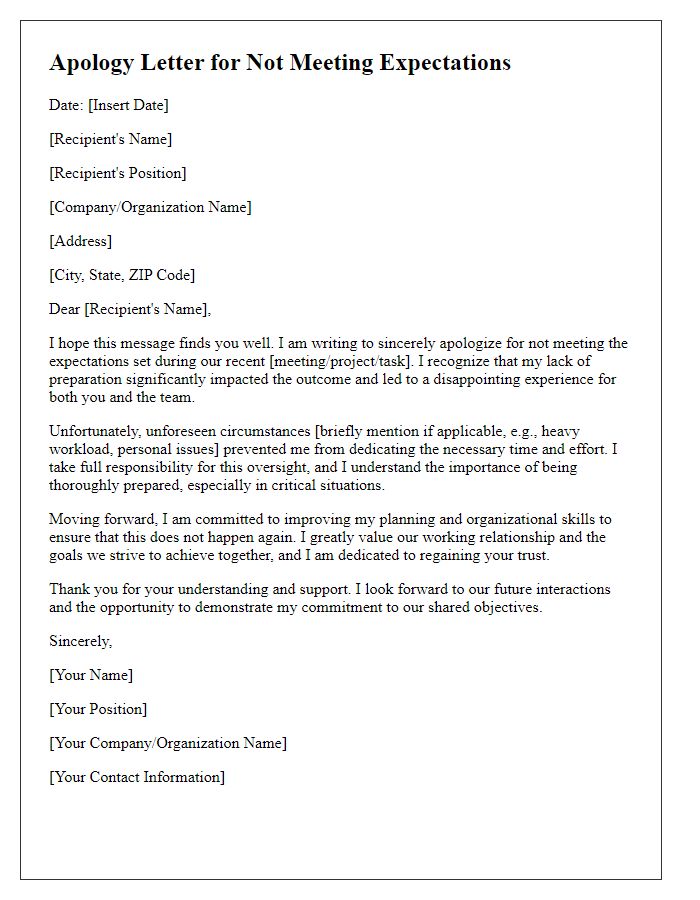

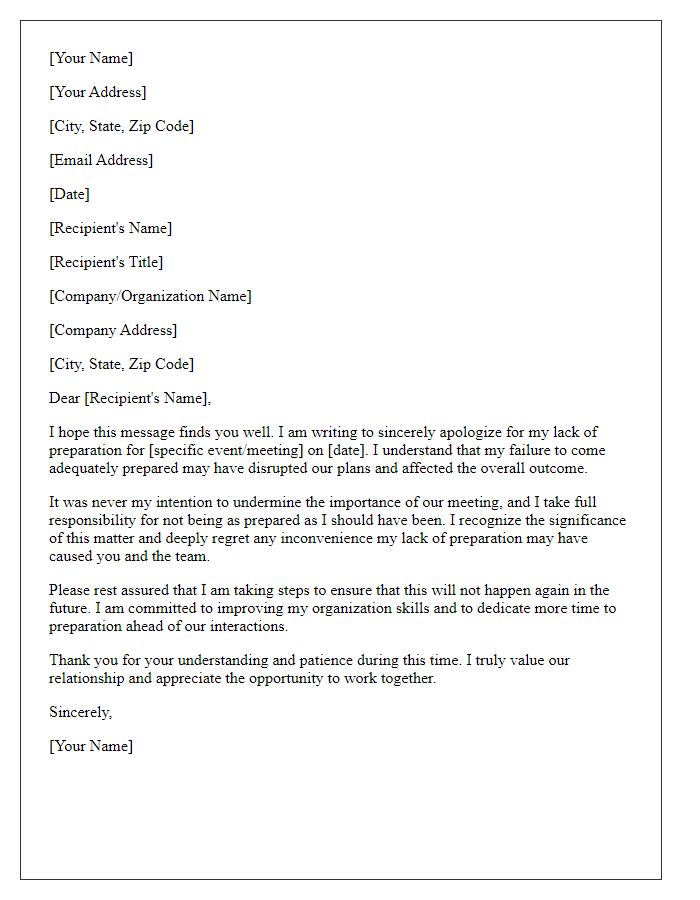
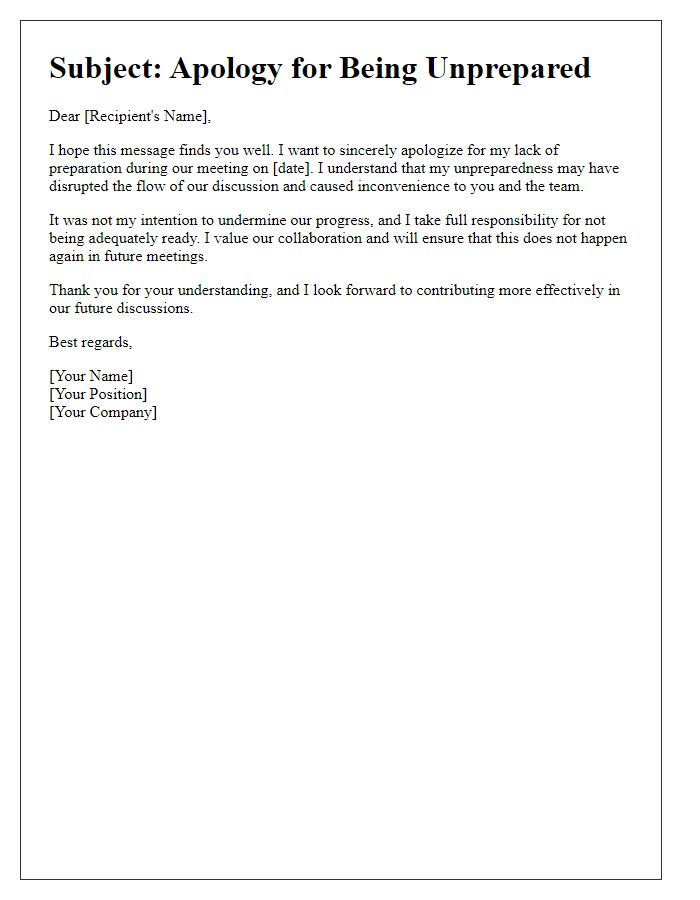
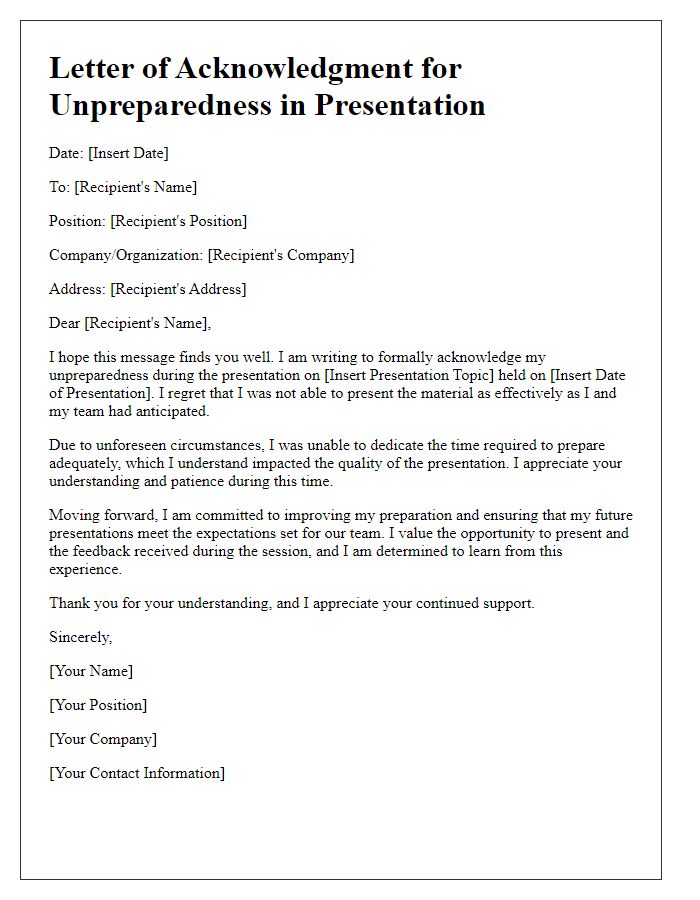
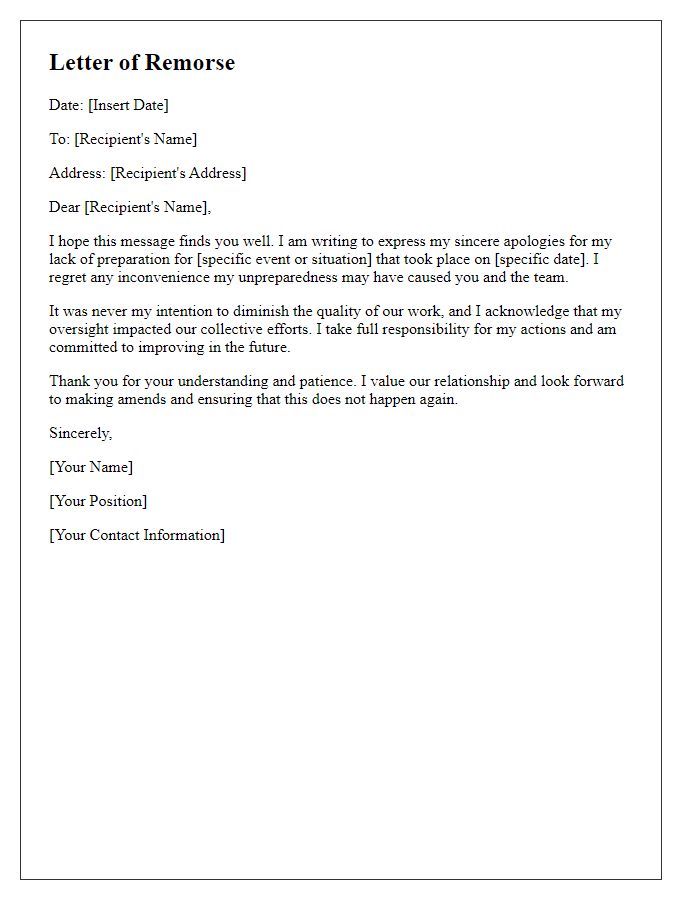
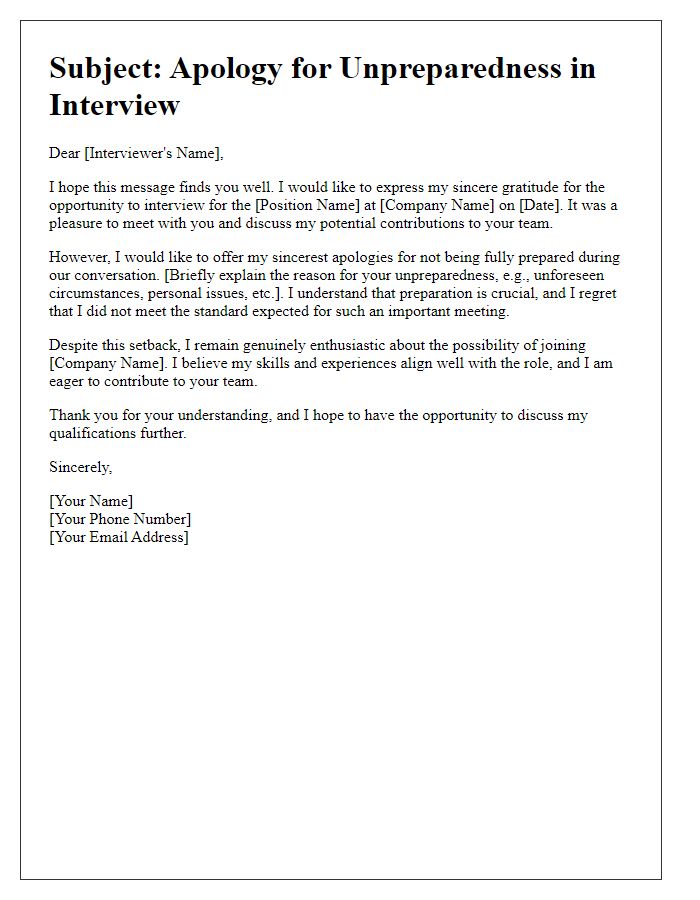
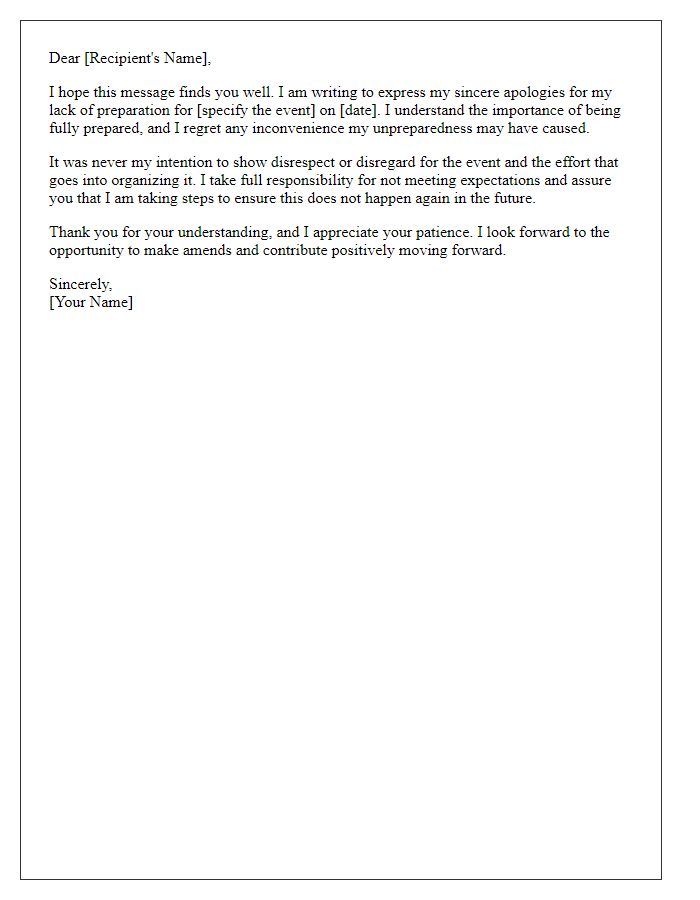
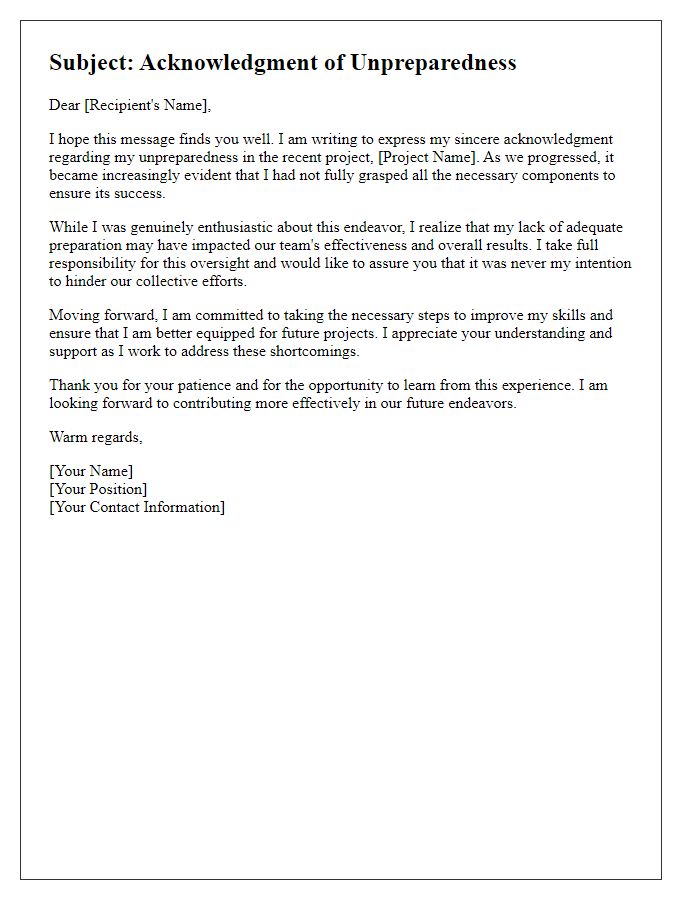
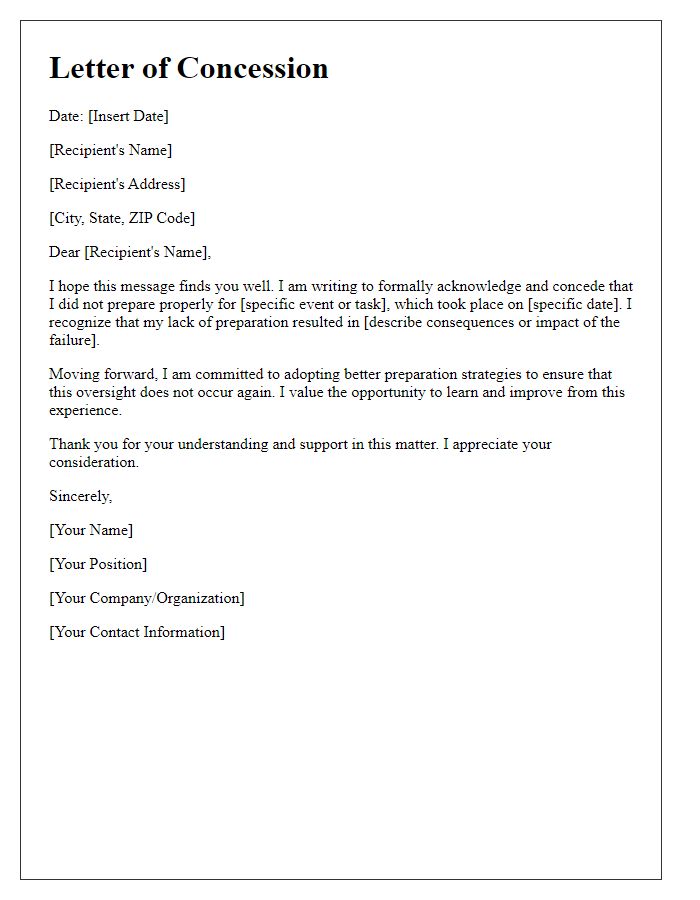
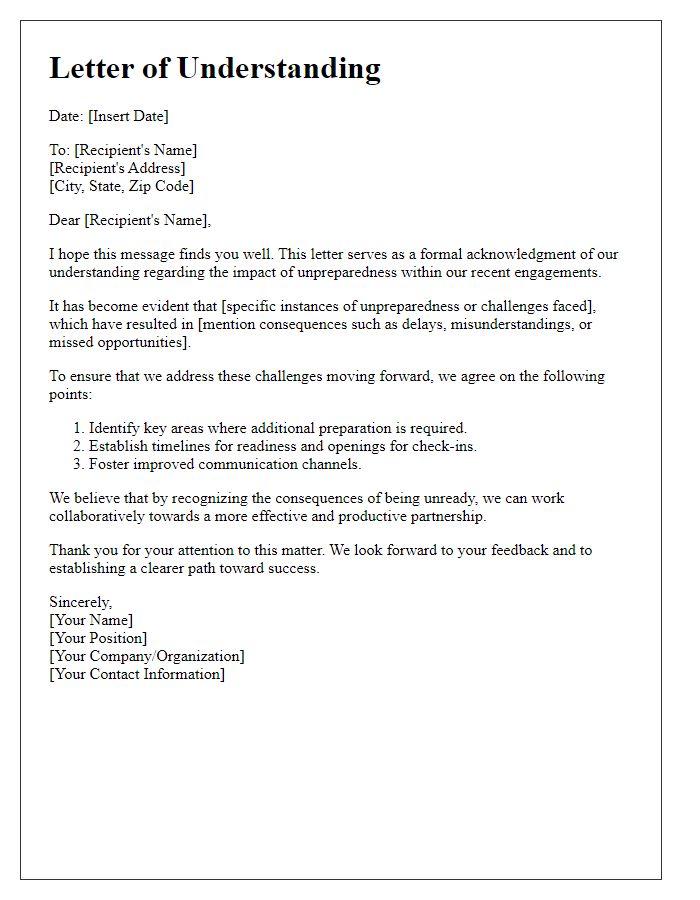


Comments